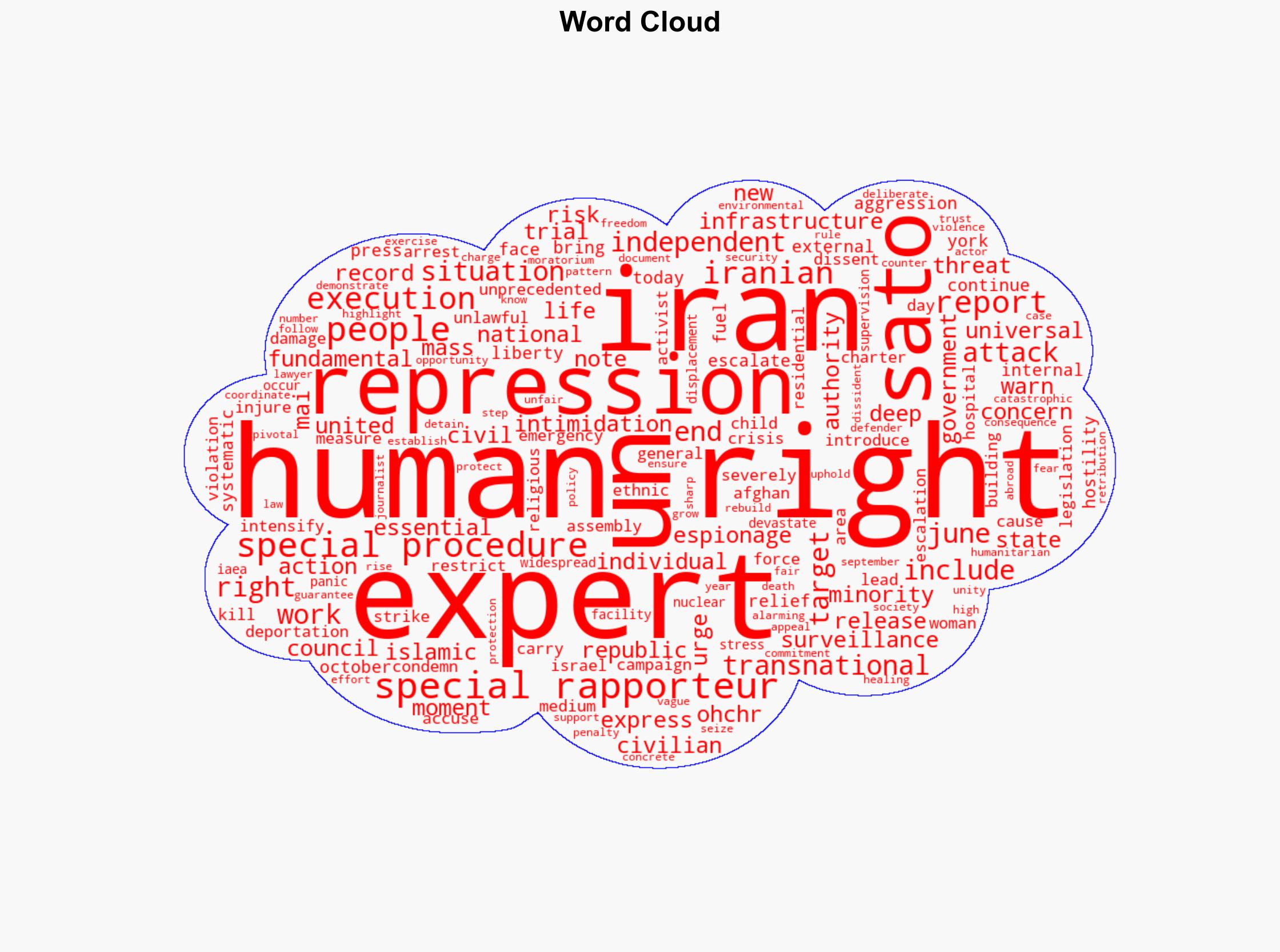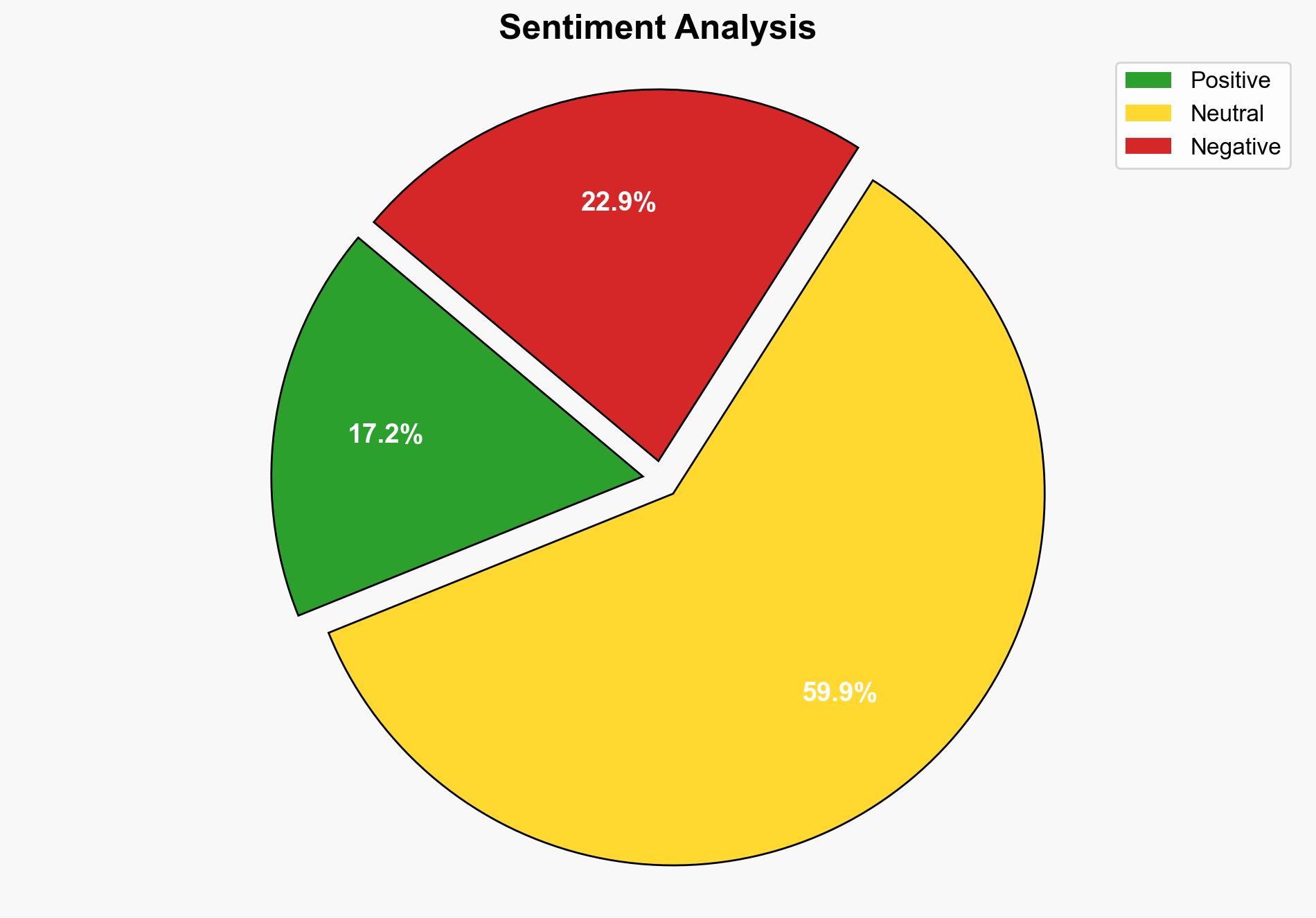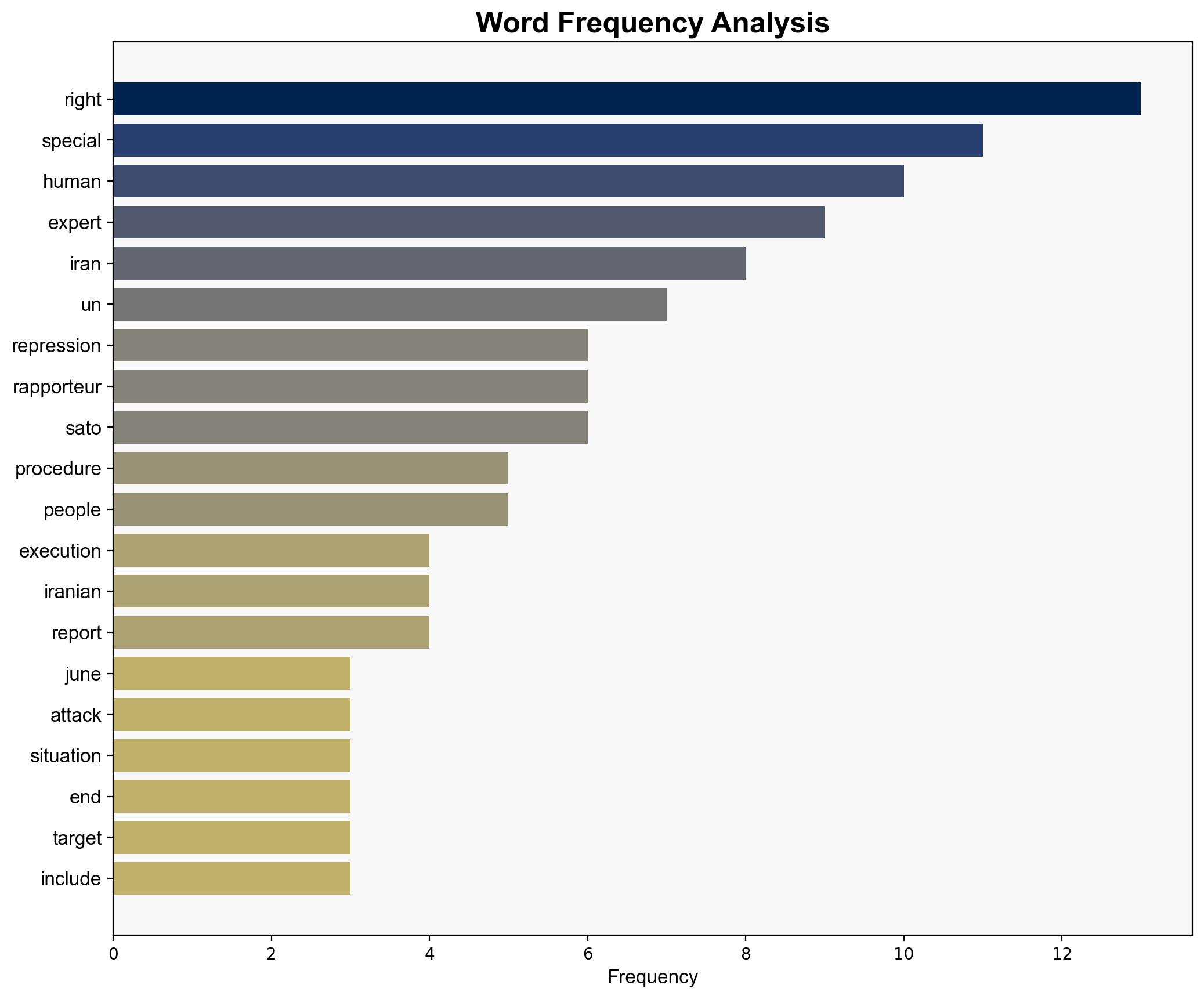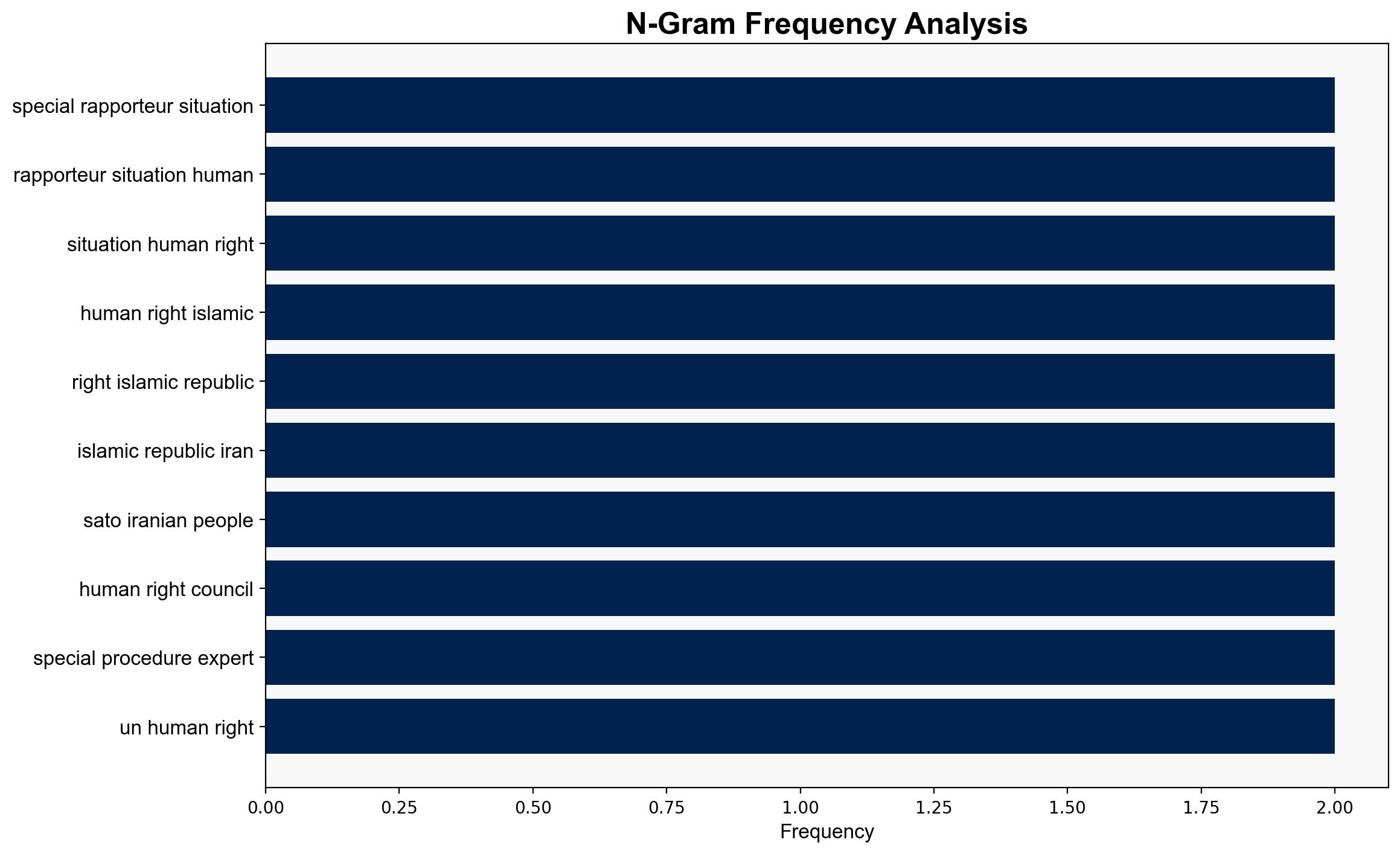Iran UN expert warns of escalating repression and record executions after June attacks – Globalsecurity.org
Published on: 2025-11-01
Intelligence Report: Iran UN expert warns of escalating repression and record executions after June attacks – Globalsecurity.org
1. BLUF (Bottom Line Up Front)
The situation in Iran is characterized by escalating repression and a record number of executions, potentially exacerbated by external pressures and internal policy shifts. The most supported hypothesis suggests that Iran’s government is intensifying its repressive measures as a strategic response to both internal dissent and external threats. Confidence level: Moderate. Recommended action: International diplomatic engagement to address human rights concerns and mitigate further escalation.
2. Competing Hypotheses
1. **Hypothesis 1**: Iran’s government is increasing repression and executions primarily as a response to external threats and attacks, using these measures to consolidate power and deter foreign intervention.
2. **Hypothesis 2**: The escalation in repression and executions is driven by internal factors, such as political instability and dissent, with the government using these tactics to maintain control over a restive population.
Using ACH 2.0, Hypothesis 1 is better supported by the evidence of external aggression cited in the report, which may justify the government’s actions as defensive. However, Hypothesis 2 is also plausible given the internal repression patterns noted.
3. Key Assumptions and Red Flags
– **Assumptions**: It is assumed that external threats are a significant driver of Iran’s internal policies. Another assumption is that the reported increase in executions is directly linked to state policy rather than independent judicial actions.
– **Red Flags**: The potential bias in the UN expert’s report, as it may not fully account for Iran’s perspective on external threats. The lack of detailed evidence linking specific external events to internal policy changes is a blind spot.
4. Implications and Strategic Risks
The continued repression and executions in Iran could lead to increased international isolation and sanctions, further destabilizing the region. There is a risk of escalating tensions with countries accused of aggression, potentially leading to military confrontations. Domestically, these actions may fuel further dissent and unrest, risking civil conflict.
5. Recommendations and Outlook
- Engage in diplomatic efforts to address human rights issues in Iran, potentially through multilateral forums.
- Monitor for signs of increased military activity or rhetoric from Iran as indicators of potential escalation.
- Scenario Projections:
- Best Case: Diplomatic resolutions lead to reduced repression and improved human rights conditions.
- Worst Case: Escalation leads to military conflict and further humanitarian crises.
- Most Likely: Continued repression with periodic international condemnations and sanctions.
6. Key Individuals and Entities
– Mai Sato, Special Rapporteur on the situation of human rights in Iran.
7. Thematic Tags
national security threats, human rights, geopolitical tensions, regional stability




